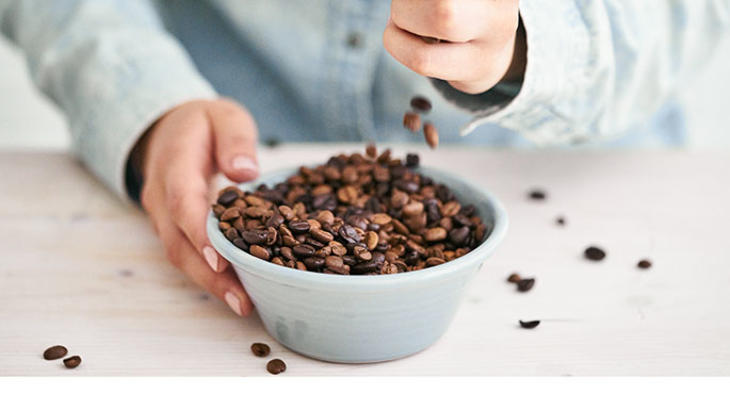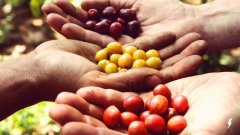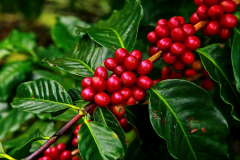What are the characteristics of boutique coffee? What is the definition of boutique coffee?

Professional coffee knowledge exchange more coffee bean information please follow the coffee workshop (Wechat official account cafe_style)
Qianjie Coffee often heard fans ask, what is boutique coffee? What are the characteristics of boutique coffee? What is the definition of boutique coffee? Indeed, as a professional coffee practitioner, even Qianjie coffee is sometimes confused by all kinds of beans known as fine coffee on the market. Is the delicious bean the fine coffee? Or is it a single coffee or a boutique coffee? Is the coffee bean produced by a famous manor necessarily boutique coffee? Who is in charge of so many boutique coffee beans on the market?
We have seen many varieties of coffee on the market, such as Blue Mountain, Mocha, Sumatra, Yega Chuefei, Italian style, boutique and individual products. Seeing so much coffee, you must wonder how I should choose to find good coffee. What are individual products and boutique products? will they be more advanced? Especially now more and more boutique coffee shops, we talk about individual products, while talking about boutique, single coffee is boutique coffee? Today, Qianjie Coffee will explain it to everyone.
What is boutique coffee?
[boutique Coffee Specialty Coffee] was first proposed by Ms. Erna Nusen, who is known as the "godmother of boutique coffee," in the Tea and Coffee monthly in 1974, highlighting that "only in the most favorable microclimate and soil and water can we cultivate boutique coffee with unique flavor." the aim is to distinguish it from the bulk commercial coffee on the New York futures market. In 1972, Ms. Knudsen, Donna Shaw and others co-founded the American Fine Coffee Association (SCAA), and the word "specialty coffee" became a global language.
SCAA's definition of the concept of fine coffee:
Carefully select the most suitable varieties, planted in the altitude, climate and soil and water environment that are most conducive to the development of coffee flavor; careful washing and sun processing, select the most advanced raw beans without defects, and deliver them to customers with zero defects in the transportation process; after the excellent craftsmanship of the roaster, lead to the richest regional flavor; and then use the recognized extraction method to make delicious coffee.
The regional flavor, that is, the difference between soil, variety, climate and soil and water, creates different coffee flavor, which is the soul of coffee in high-quality producing areas. In short, boutique coffee should be a high-quality coffee with "good raw beans, good roasting and good extraction".
But this also sounds a little vague, ah, what is high quality? Later, the European boutique coffee association SCAE put forward the standard: the cup test score of more than 80 points is called boutique coffee. Now that SCAA and SCAE have been merged into SCA, the definition of boutique coffee is consistent, that is, through the comprehensive cup test (blind test), the score of more than 80 points can be defined as boutique coffee beans. If the blind test score is less than 80, it will be classified as commercial bean.
Is boutique coffee more advanced?
High-quality beans are really better, because high-quality beans need to go through a lot of screening, from selecting beans, roasting, grinding beans to putting them into coffee cups, every step is very particular, and the key point is that the cup test of coffee beans should be more than 80 points. can be called boutique coffee, so boutique coffee needs to go through a very strict and difficult screening to become a boutique coffee bean.
The following is a translation excerpt of the definition of "boutique coffee" by the three major boutique coffee associations in the world:
(three boutique coffee associations: American boutique coffee association SCAA, European boutique coffee association SCAE, Japanese boutique coffee association SCAJ)
European Fine Coffee Association:
Boutique coffee is [after consumers drink, give carefully carved high-quality coffee evaluation], this cup of coffee will have a unique quality and outstanding flavor, different from the general coffee available everywhere, European boutique coffee admits that the market supply of boutique coffee has its limitations, it does not belong to the coffee service that can be consumed everywhere, but with the highest standard of raw beans through superb baking technology. All raw beans and cooked beans adopt high-standard storage specifications, and then brew high-quality coffee with high-standard brewing technology.
American Fine Coffee Association:
Boutique coffee is completed by the five people who pursue quality all their lives. From beginning to end, these people maintain a consistent standard of excellence to ensure quality, and as a priority, all participants can work together. They can't do without! They include "coffee farmers", "raw bean buyers", "bakers", "baristas" and "consumers". In the overall cycle from production to consumption, we work together to achieve the true meaning of boutique coffee.
Japan Fine Coffee Association:
Boutique coffee is [consumers drink coffee with excellent flavor, willing to give good comments, and consumers are satisfied]; the definition of excellent flavor means that the coffee flavor can leave a clear impression, sour, bright, crisp and special, and the coffee has a sweet aftertaste. As for coffee itself, all stages from raw beans to a cup of coffee can implement consistent and strict production procedures, unified procedures and strict quality management. Only coffee that meets the above conditions belongs to high-quality coffee.
From the definition of fine coffee by the three major boutique coffee associations in the world, it can be found that fine coffee refers to all the processes from "one cup of coffee seed to one cup of coffee". Only by taking good care of every link and understanding the source to the end can we understand "fine coffee".
END
Important Notice :
前街咖啡 FrontStreet Coffee has moved to new addredd:
FrontStreet Coffee Address: 315,Donghua East Road,GuangZhou
Tel:020 38364473
- Prev

What are the three waves of coffee? When will the fourth wave of coffee arrive?
Professional coffee knowledge exchange more coffee bean information Please follow coffee workshop (Wechat official account cafe_style) Coffee drinkers have mostly heard of the third wave of coffee, so does anyone know what is the first wave of coffee and what is the second wave of coffee? How do these coffee waves make people feel different? When is the fourth wave of coffee?
- Next

The difference between boutique coffee and commercial coffee. What are the criteria for dividing boutique coffee from commercial coffee?
Professional coffee knowledge exchange more coffee bean information Please pay attention to the coffee workshop (Wechat official account cafe_style) unless you are very skilled in coffee, if you love it very much, most people will not explore the question of boutique coffee and commercial coffee. The name of boutique coffee sounds high-end, while commercial coffee sounds like a popular product, but the world of coffee is really
Related
- Beginners will see the "Coffee pull flower" guide!
- What is the difference between ice blog purified milk and ordinary milk coffee?
- Why is the Philippines the largest producer of crops in Liberia?
- For coffee extraction, should the fine powder be retained?
- How does extracted espresso fill pressed powder? How much strength does it take to press the powder?
- How to make jasmine cold extract coffee? Is the jasmine + latte good?
- Will this little toy really make the coffee taste better? How does Lily Drip affect coffee extraction?
- Will the action of slapping the filter cup also affect coffee extraction?
- What's the difference between powder-to-water ratio and powder-to-liquid ratio?
- What is the Ethiopian local species? What does it have to do with Heirloom native species?

